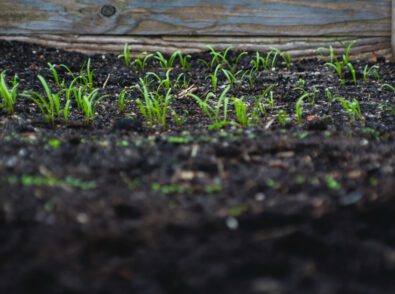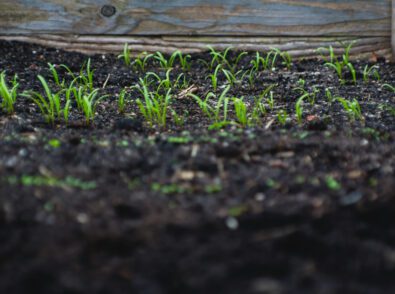What Are Biobased Products?
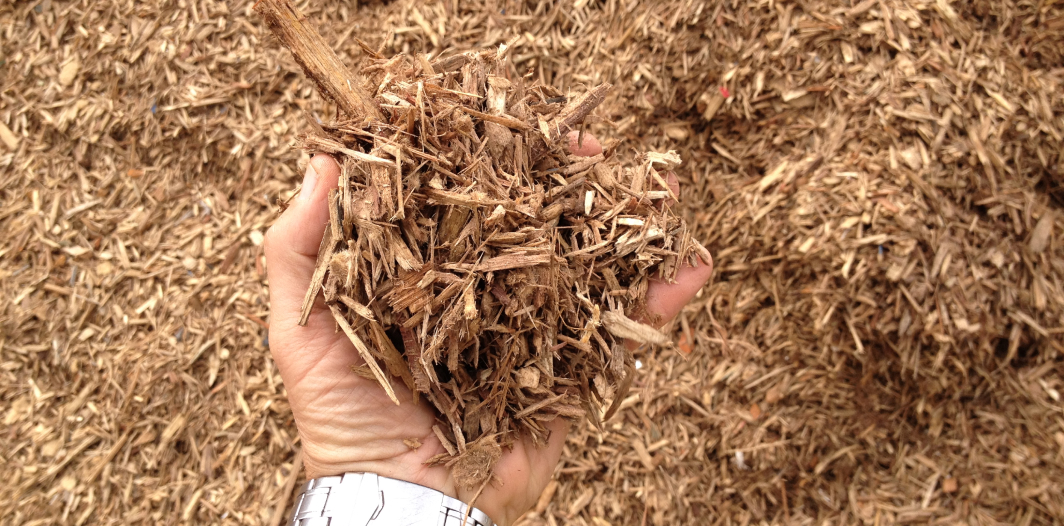
Content
- Biobased Products Explained
- Benefits of Biobased Products
- Overview of USDA Biobased Labeling Program
- Biobased Product Information for Buyers
- Biobased Product Information for Sellers
- Typical Biobased Products Currently on the Market
- Companies Working With Biobased Products
- Biobased Foodservice Items From Greenprint
As our environment continues to suffer from plastic pollution and a decrease in renewable resources, people are looking for ways to reduce our reliance on petroleum products, like plastics and other nonrenewable materials.
Biobased products made from plant, marine, or animal-based materials are gaining traction in all consumer and industrial goods. Everything from engine oil to bath products, cleaning solutions, single-use foodservice products, insulation, upholstery, and pens can be biobased. They do not contain feed, fuel, or food and must come from renewable sources.
In this blog post, we’ll discuss biobased products. We’ll learn what they are and their environmental impacts and examine how they can help us live more sustainably.
Biobased Products Explained
Biobased products represent a new wave of innovation and sustainability and are rapidly gaining popularity in today’s market. Derived from renewable biological resources such as plants, algae, agricultural, animal, and various types of biologically derived waste materials, these products provide a more eco-friendly alternative to conventional petroleum-based products.
The growing interest in biobased products stems from their potential to reduce dependency on fossil fuels, decrease greenhouse gas emissions, and stimulate economic growth by creating new industries and job opportunities.
Moreover, consumer preferences have shifted toward environmentally friendly and sustainable products, further driving the demand for biobased alternatives. As a result, businesses and organizations worldwide are investing in the research, development, and commercialization of biobased solutions to address the ever-evolving challenges of climate impact and resource depletion.
Benefits of Biobased Products
Biobased products offer many of the same benefits as standard products, including competitive cost, excellent performance, and high availability. They also provide these additional advantages:
- Increased use of renewable resources: The environment can benefit from the use of biobased products and other renewable resources instead of nonrenewable ones — such as petroleum gas.
- Reduced emissions: Displacing petroleum-derived products with biobased materials can decrease atmospheric emissions.
- Carbon solutions: Biomass products can generate low-carbon and carbon-negative energy and offer solutions for carbon storage and capture for removal.
- Circular life cycle: Since biobased materials consist of natural elements, they can biodegrade. When the biobased product ends its useful life, it can decompose with a lower environmental impact.
- Boost to the American economy: Biobased products contribute billions of dollars to the U.S. economy and directly and indirectly support millions of jobs. Local economies can also benefit by using regional biomass resources to create revenue for landowners and growers, promote a circular economy, and more.
Overview of USDA Biobased Labeling Program
The United States Department of Agriculture (USDA) biobased labeling program is an initiative designed to help consumers make better-informed choices when it comes to choosing sustainable products. In establishing labeling standards for biobased and BioPreferred products, the USDA is essentially endorsing goods and materials made and processed in a way that aligns with their standards. Only the USDA can designate biobased products for federal procurement.
The USDA’s BioPreferred program was established in 2002 as part of the Farm Security and Rural Investment Act. The Farm Bills of 2008 and 2014 further expanded the federal purchasing requirements for biobased products. To date, the program has certified over 3,000 products across 139 categories. Once approved, the product can display the USDA Certified Biobased Product seal, which states the product’s guaranteed percentage of biobased material.
The brand is a reliable signal for customers looking to play their part in protecting the environment by purchasing products that reduce their carbon footprint and contribute to sustainable economic growth. Ultimately, the USDA biobased labeling program empowers both businesses and consumers to become more environmentally responsible, fostering a brighter future for our planet.
Criteria That Products Must Meet to Earn USDA-Certified Biobased Product Label
USDA certification is not arbitrary—the certification process is precise and thorough because the federal government stands behind the accuracy of results, ensuring consumer confidence when buying decisions are made.
Once the product has undergone USDA initial screening, the Voluntary Labeling Initiative verifies the percentage of biobased content using the ASTM D6866 analytical method. A product must have a minimum biobased content percentage. The percentage to meet is set by the USDA and differs by product category. If your product doesn’t fit an established category, it must have a minimum of 25% biobased content.
If the Voluntary Labeling Initiative verifies the minimum biobased content percentage requirement is met, the manufacturer must test the product at an accredited third-party laboratory to confirm these results. Products cannot be labeled before being tested.
How to Tell If You’re Purchasing a USDA-Certified Biobased Product
Products certified by the USDA as biobased have a special BioPreferred symbol on their packaging. You can also find these products at GSA Global Supply™ and GSA Advantage!®. To check your existing products for the BioPreferred certification, use the BioPreferred Program’s biobased product database. This database is a list of currently designated items and the minimum biobased content required.
Biobased Product Information for Buyers
Buyers must consider the following information when switching to BioPreferred products:
- Federal purchasing requirement: The Farm Bill of 2008 requires federal agencies to purchase biobased products identified for a Federal Procurement Preference, with a few exceptions.
- FAR reporting: According to the Affirmative Procurement of Biobased Products Under Service and Construction Contracts amendment, services and construction contractors must report when they’ve purchased biobased products to the reporting portal.
- USDA loans and grants: The BioPreferred program and the USDA State Rural Development department have launched a joint effort to ensure biobased companies use the economic development resources available to them.
Biobased Product Information for Sellers
Sellers should be aware of this biobased product information:
- Mandatory federal purchasing: As part of the federal purchasing requirement of biobased products for buyers, the USDA publishes biobased content information for the various product categories. Biobased product purchasing requirements are included in purchase agreements, contracts, and solicitations.
- Product categories: The BioPreferred program has many categories for federal purchasing and Voluntary Labeling Initiatives. If your products do not fit the established categories, they can be classified as “other,” or you can suggest a new category.
- Selling products in the federal marketplace: Federal buyers and contractors need qualified biobased products to meet the federal purchasing requirement. You can market to these federal organizations by adding your company and product information to the BioPreferred Program Catalog.
Typical Biobased Products Currently on the Market
The market for biobased products has seen tremendous growth and innovation in recent years, leading to a wide variety of eco-friendly alternatives for various consumer and commercial applications. The most common biobased products on the market include:
- Bioplastics: Among the most notable biobased products are bioplastics, which can replace most traditional petroleum-based plastics in packaging, consumer goods, and automotive parts.
- Lubricants and oil: Another breakthrough is biobased lubricants and engine oil, which can significantly reduce environmental impact in industrial operations by minimizing harmful emissions and resource utilization.
- Biofuels: Additionally, biofuels such as ethanol and biodiesel are playing a crucial role in reducing dependence on fossil fuels and fostering energy security.
- Foam and insulation:Advancements have also been made in producing biobased foams and insulation materials, offering improved energy efficiency and reducing the carbon footprint of buildings.
These diverse applications of biobased products highlight their potential to solve pressing environmental challenges and contribute to market growth and job creation in the rapidly expanding green economy.
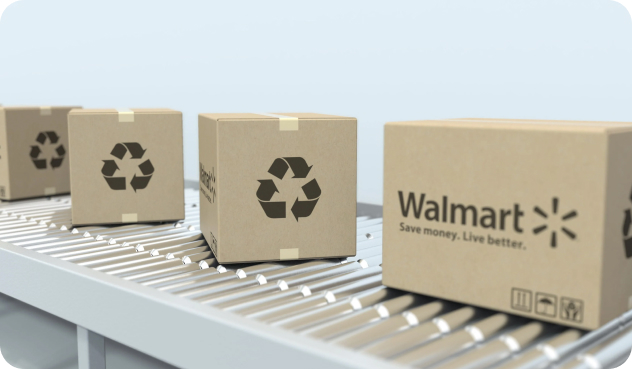
Companies Working With Biobased Products
As the sustainability trend gains traction in all segments of our lived experience, several manufacturers have emerged as frontrunners in developing and implementing novel biobased products. Brands hold the key to market penetration for biobased items. Even if products themselves cannot be made from biobased materials, biobased ingredients can still be used for packaging.
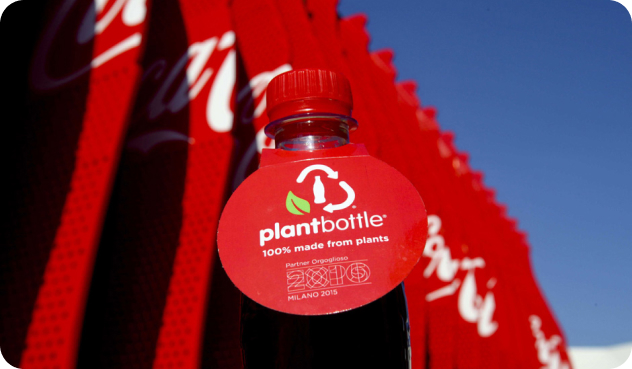
These trailblazers have the unique ability to adapt to market changes and anticipate consumer needs, allowing them to transform entire industries and create new ones with these groundbreaking solutions:
- Walmart: Walmart aims to achieve 100% recyclable, reusable, or compostable packaging for their private brands by 2025.
- PepsiCo: PepsiCo has a goal to make 100% of their packaging recyclable, biodegradable, reusable, or compostable by 2025 and cut the use of plastic from nonrenewable resources by 2030.
- Unilever: Unilever is committed to switching to 100% recyclable, compostable, or reusable packaging by 2025.
- Lego: Toymaker Lego has already introduced sustainable packaging, aiming to make all packaging from sustainably sourced materials by 2025. Lego has also pledged to switch to biobased plastics for all its toys with a deadline of 2030.
- Henkel: High-end cutlery manufacturer Henkel is committed to 100% recyclable or reusable packaging by 2025 and a 50% reduction in using plastics from fossil sources.
- Coca-Cola: Coca-Cola introduced its 30% biobased PlantBottle™ in 2009 and, in 2015, revealed a prototype bottle made from 100% biobased PET. In 2021, Coca-Cola revealed a prototype for a bottle consisting of 100% plant-based plastic, including the label and cap.
- IKEA: IKEA has also begun its transition to biobased and intends to use only recycled or renewable plastic in all products by 2030. In March 2023, the Swedish company revealed that they will now use only biobased glue. The fascinating part of this reveal is, perhaps, the admission that 5% of the company’s carbon footprint is wrapped up in the use of glue in their board materials. And just consider—if something as innocuous as glue can make such a difference to our environmental impact, it drives home the fact that the smallest changes can make the biggest difference.

Biobased Foodservice Items From Greenprint
But the big brands aren’t the only ones focused on making the world better with biobased products. Greenprint’s single-use foodservice products, such as straws, cutlery, and takeout containers, provide restaurants and food producers with sustainable options that reinforce their environmental commitment.
Greenprint products comply with the most stringent international composting regulations, and by sourcing all raw materials domestically, we reduce carbon output and accelerate lead times. We’re constantly innovating, always looking for new materials and methodologies that give rise to novel applications.
Like many of our big-brand peers, we are committed to making meaningful changes that contribute to the establishment of a sustainable green economy and doing what we can to be on the leading edge of that change. So before you commit your hard-earned dollars, look for companies promoting biobased, as you can be confident their products are steeped in a sustainable mindset.
References
- https://www.rts.com/blog/plastic-pollution-in-the-ocean-2023-facts-and-statistics/
- https://www.biopreferred.gov/BioPreferred/faces/pages/AboutBioPreferred.xhtml
- https://www.govinfo.gov/content/pkg/USCODE-2021-title7/pdf/USCODE-2021-title7-chap107-sec8102.pdf
- https://www.biopreferred.gov/BioPreferred/faces/pages/ProductCategories.xhtml
- https://www.biopreferred.gov/BioPreferred/faces/pages/AboutLabel.xhtml
- https://www.gsa.gov/buy-through-us/purchasing-programs/requisition-programs/gsa-global-supply
- https://www.gsaadvantage.gov/
- https://www.energy.gov/eere/bioenergy/biofuel-basics
- https://www.researchgate.net/publication/348688618_Biobased_foams_for_thermal_insulation_Material_selection_processing_modelling_and_performance
- https://www.arup.com/perspectives/a-new-understanding-of-the-green-economy
- https://www.walmartsustainabilityhub.com/waste/sustainable-packaging/goals
- https://www.pepsico.com/our-impact/esg-topics-a-z/packaging
- https://www.unilever.com/planet-and-society/waste-free-world/rethinking-plastic-packaging/
- https://www.lego.com/en-us/sustainability/environment/sustainable-packaging?locale=en-us
- https://www.henkel.com/sustainability/positions/packaging
- https://www.coca-colacompany.com/press-releases/coca-cola-produces-first-pet-bottle-made-from-plants
- https://www.bioplasticsmagazine.com/en/news/meldungen/20150604_Coca-Cola.php
- https://www.coca-colacompany.com/media-center/100-percent-plant-based-plastic-bottle
- https://www.ikea.com/ca/en/this-is-ikea/sustainable-everyday/sustainable-materials/only-recycled-or-renewable-based-plastic-in-ikea-products-by-2030-pube6434c20
- https://www.ikea.com/global/en/newsroom/sustainability/ikea-to-use-bio-based-glue-for-reduced-climate-footprint-230301/





